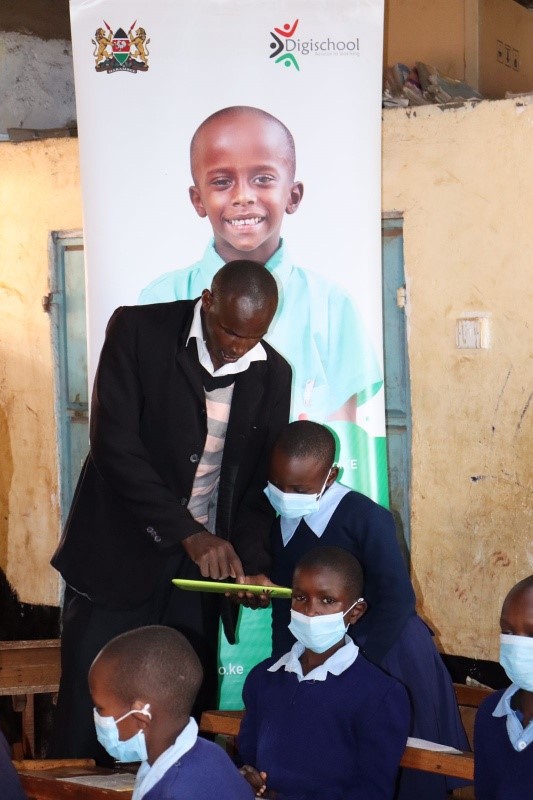Last Mile Internet: The Kenya government is stepping up its drive to ensure more Kenyans are connected to the internet as part of a broader policy to deliver better public services. In order to do so, the ICT Authority and the State Department for Training and Skills Development is working with the private sector and other agencies to ensure last mile internet connectivity from the government’s fibre optic infrastructure that runs across the country.
Speaking during the addition of Bosto Primary School in Bomet to its National Schoolnet Programme, Alfred Cheruiyot, Principal Secretary in the State Department for Training and Skills Development explained that with this direction, the government will have connected 8,000 schools to the Internet by the end of 2022 and that all special needs institutions will be first-off the block.
“For us to achieve this ambitious target, we are working with ICT Authority and Huawei to deploy appropriate technologies for schools depending on their locations and technology presence. This includes laying an additional 100,000 Km of fiber optic cable countrywide and setting up more microwave and satellite points,”
said Cheruiyot, adding that last mile internet connectivity to schools within a radius of 10 kilometers of the national fibre optic cable will be delivered using additional masts while those within 1 kilometer will be connected directly through a new cable to the institution.
He was accompanied by Dr. Kipronoh Ronoh, the Acting Chief Executive Officer at the ICT Authority and Dr. Jerotich Sirma, a Director at the ICT Authority.
TSC releases guidelines for hiring of new interns
According to Dr. Ronoh, the government plan to bridge the national digital divide remains on course and the Schoolnet Program and the Kenya Education Cloud are key planks in ensuring learners across the country access quality education content, consistently.
“The successful rollout of the Schoolnet program shows that the government will then be able to connect all the 18,000 government offices, 13,000 health facilities, 400 police stations, and 54 Huduma Centres to high-speed internet capacity. Additionally, over 5 billion government manual records will be digitized and all critical government systems automated and integrated to enhance service delivery,”
he added.
He urged the community to embrace technology as a new way to tap into their talents and investments so as to spur economic growth. He noted that in order to ensure stability of the internet services, the ICT Authority had the support of the security agencies to protect the infrastructure and asked the members of the public to report any cases of vandalism.
Echoing his remarks, Dr. Sirma, a member of the ICT Authority Board of Directors said that Bosto Primary School illustrated the model that the government is pursuing in partnership with Huawei to set up wireless microwave radio link masts in or close to the school compounds then connect these to the National Optical Fiber Backbone Infrastructure (NOFBI).
“Broadly, in order to bridge the digital divide, the government aims to train 20 million citizens in the country on digital skills and roll out broadband connectivity to the rural areas under the rural digitization programme. Plans are also underway to digitize rural areas and connect over 10 million homes and 24,000 businesses upcountry to the internet”,
she said.
The ICT Authority, noted Dr. Sirma, will forge more partnerships with the private sector to deepen sectoral interventions that leverage technology, such as Huawei’s Tech4All program, designed to improve the quality of education, change the lives of the learners and give them the chance for a better future.








